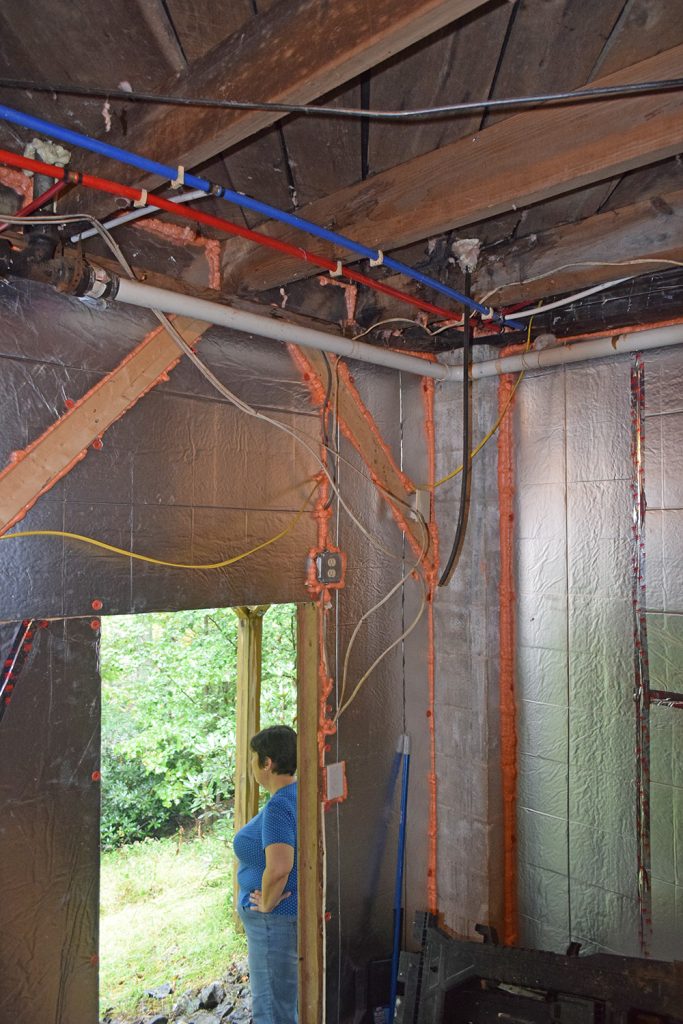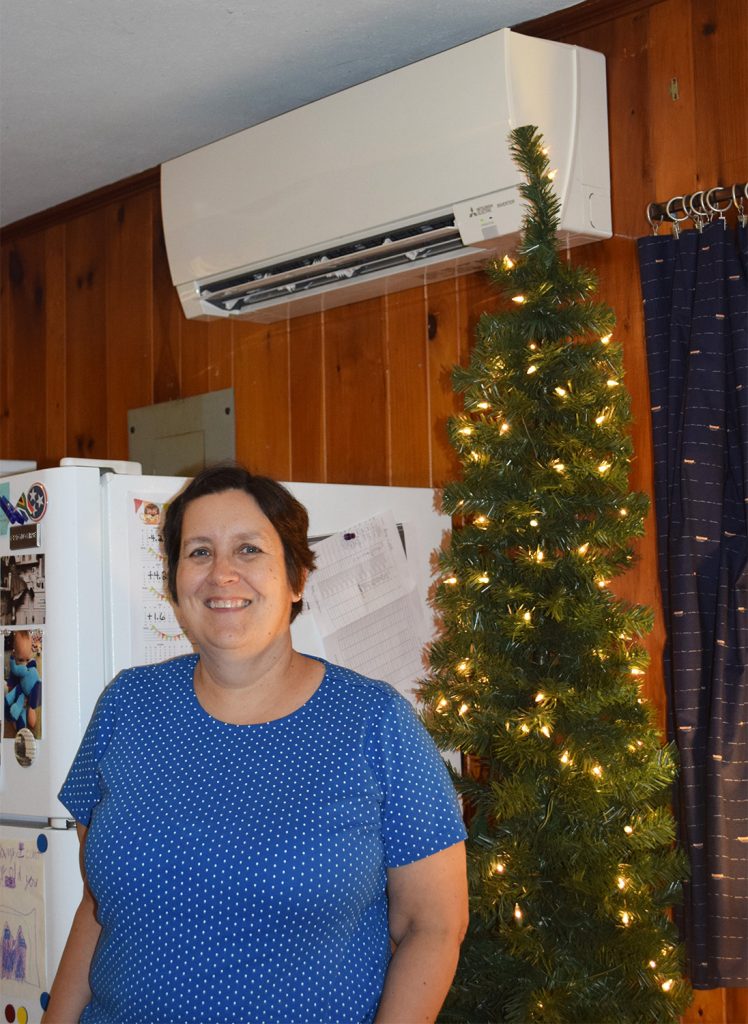Amy Cook of Boone, N.C., recently received $4,000 worth of energy-saving home improvements as the grand-prize winner of our High Country Home Energy Makeover Contest. The contest targeted households that don’t qualify for free federal weatherization but can’t afford the necessary home upgrades, illuminating the need for affordable weatherization programs in the region.
Cook works part-time at the Watauga County Public Library and cannot afford to take on a loan to upgrade her home. Her home, which she bought in 2017, was ineligible for the federal Weatherization Assistance Program because a prior owner had already participated in the program, yet Cook still was paying high energy bills.
Her 624-square-foot home used to be a summer cottage, and after her first winter there, she had difficulty paying her electric bill, which sometimes reached over $300.
“The heating situation in the winter was a major issue. It’s a very small house and I’m hot natured, but it wasn’t comfortable at all and the electric bills were still high. I also had frozen pipes the first week of January,” she said. This was a clear sign that her home needed energy efficiency upgrades in order to lower her bills.
Based on a variety of criteria, our Energy Savings for Appalachia team selected five finalists this spring, including Cook. Each finalist received a free energy audit from John Kidda of reNew Home Inc. During Cook’s audit, Kidda found that her home had decent insulation, but her electric baseboards — the sole heating source — were extremely inefficient.
Appalachian Voices partnered with Edmisten Heating and Cooling to install a new mini-split heat pump in her home, one of the most efficient ways to heat and cool a home. Asked about the performance of the mini-split, Cook said, “It’s as quiet as my fridge and has done a great job so far with cooling my home. I can’t wait to see how well it warms the house this winter!”
In addition to the mini-split that we were able to provide for Cook, she was also able to do some additional weatherization that she previously didn’t think would be possible. After she shared the results of Kidda’s home energy audit, Cook’s family was compelled to help fund insulation in the home’s crawl space, an improvement that should save her even more money and keep her pipes from freezing during brutal winter weather.
Many people in the High Country find themselves in the same situation as Amy and don’t know how to lower their energy bills. The High Country is serviced by an electric co-op, as opposed to a large investor-owned utility, which means that the electric provider is supposed to be concerned for the community it serves and it has the ability to provide unique programs.

Amy’s crawlspace was retrofitted with foam board insulation and sealant on the walls to replace moldy fiberglass insulation that was improperly installed before she bought the home. Photo by Lauren Essick
Blue Ridge Energy, which serves the High Country, is a large co-op with many resources but still has not created an inclusive financing program to help its members pay for energy efficiency upgrades, despite members asking the cooperative management for years to create one.
“Typical energy efficiency loan programs like that offered by Blue Ridge Energy are only available for people who own their home and have good credit. This leaves thousands of families who are Blue Ridge members and who struggle with their energy bills each winter without an option for paying for the energy upgrades they need in order to live more comfortably and lower their energy bills,” said Rory McIlmoil, Energy Savings Program Manager at Appalachian Voices.
Blue Ridge, and all other co-ops in the country, have access to billions of dollars a year through the U.S. Department of Agriculture for programs that comprehensively benefit the entire communities that they serve. Blue Ridge, year after year, has continued to leave this money on the table.
“Blue Ridge Energy, like many other co-ops, are refusing to address a significant need that exists in the communities they serve, despite the availability of low-cost funding, and despite the fact that they wouldn’t even have to take on the burden of implementing an inclusive program,” says. “That is a problem.”
For more information, visit www.AppalachianVoices.org/energysavings.
Through grassroots organizing in Appalachian communities, Appalachian Voices’ Energy Savings program works to make clean, affordable energy accessible to all member-owners of rural electric cooperatives. We do this by providing the resources, education and training essential for members to participate in the decision-making processes of their co-ops. We also provide electric cooperatives with the tools to successfully implement energy efficiency and renewable energy programs that benefit all members and promote community economic development.




Would it be possible to share her energy savings over the next year with us?